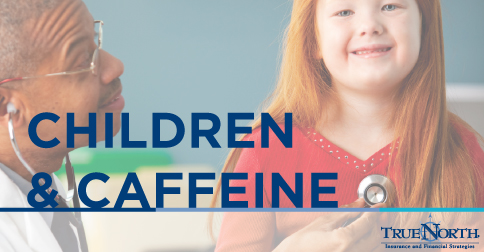Children and Caffeine

Although it's a natural substance, caffeine is classified as a drug because it stimulates the central nervous system. Parents should be aware of the harmful effects of caffeine on children and should know that caffeine is present in many foods and beverages.
How does caffeine affect kids?
Caffeine affects children in the same way it does adults; too much causes sleeplessness, irritability, headaches, increased heart rate and difficulty concentrating. The reason it is more of a concern when children consume caffeine than when adults do is because it does not take a large amount to cause these side effects.
Specific reasons to limit children's caffeine intake:
- Kids who consume one or more 12-ounce (355-milliliter) sweetened soft drink per day are 60%more likely to be obese.
- Hot weather and caffeine do not mix. When out in the heat, it is important for children to replace water lost through perspiration. Products containing caffeine will not rehydrate.
- It can aggravate heart problems and nervous system disorders.
- Not only do caffeinated beverages contain empty calories, but kids who fill up on them don't get the vitamins and minerals they need from healthy sources, putting them at risk for nutritional deficiencies.
What contains caffeine?
Most children receive caffeine through soft drink consumption, but it is also found in chocolate, ice cream, tea, and some pain relievers and other medications. It is important to understand that coffee contains large amounts of caffeine (a 5-ounce cup of coffee contains over double the caffeine of a 12-ounce soda).
Advice for parents
In order to protect your child from caffeine's effects, consider the following suggestions:
- Offer your child water, milk, flavored seltzer or 100-percent fruit juice as an alternate beverage.
- Buy caffeine-free versions of soft drinks.
- Keep track of how much caffeine your child has during the day.
- Don't allow your child to consume caffeine for several hours before bedtime.
- Be aware if your teenager begins consuming beverages containing coffee.
- If your child or teenager already consumes large amounts of caffeine, reduce daily intake slowly to avoid sudden withdrawal symptoms, such as headaches, muscle aches and irritability.
Occasional consumption of caffeine is not harmful, so it is perfectly fine to let your child have an occasional soft drink or chocolate bar. Just remember - moderation is the key! To access additional information regarding caffeine and its effects on children, please visit their article at kidshealth.org.
Learn more about TrueNorth Employee Benefits
TrueNorth offers businesses of every size comprehensive solutions to meet their business needs and those of their employees. If you are in need of business solutions or are looking to start a business of your own, please call TrueNorth. Our Employee Benefits division would be happy to assist you in providing for the well-being of both you and your staff. Call us today at 1-800-798-4080.